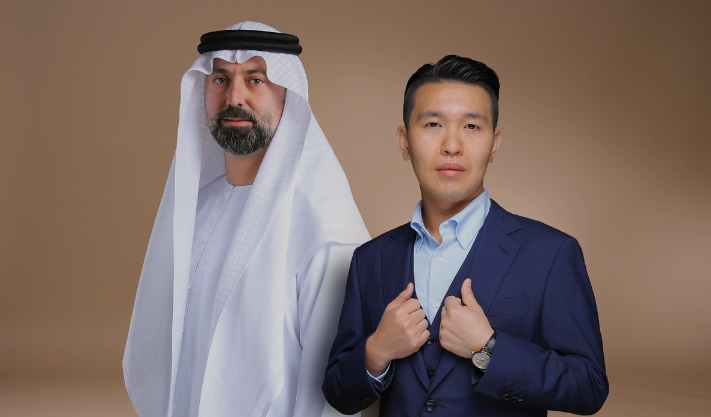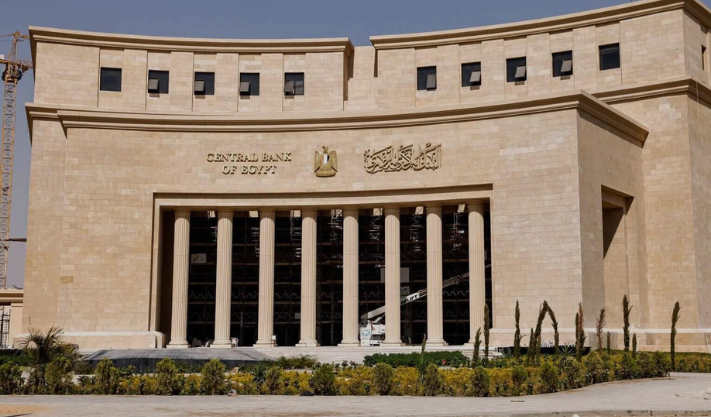Exploring how traditions shape cultural identity, values, and social norms, while evolving in response to modern challenges and global influences
Ten years ago, Mahmoud Adi and Shane Shin met while working together in Silicon Valley. It was a lucky encounter. Shane, from South Korea, had studied in Canada and worked in New York before joining the Mubadala-backed chipmaker GlobalFoundries in Silicon Valley. Mahmoud, originally from Abu Dhabi, arrived at GlobalFoundries a week earlier with Mubadala after studying at Stanford Business School. Despite their different backgrounds, they quickly realized they shared similar ambitions and a common vision for the future.
In 2017, three years after meeting, they started Shorooq Partners, an alternative investments company, in the U.A.E. Starting with just the two of them, no office, and a big dream, the company has grown significantly in seven years. Shorooq now manages about $500 million in assets, up from an initial $2 million. It has offices in Dubai, Abu Dhabi, Saudi Arabia, Egypt, and South Korea, with plans to expand to Qatar, and employs around 30 people. Among its portfolio of 82 companies are successful businesses like Saudi fintech unicorn Tamara, Egypt’s e-grocery platform Breadfast, and U.A.E-based agritech firm Pure Harvest, which Adi also co-founded. Investors in Shorooq include Mubadala, Bahrain’s Al Waha Fund of Funds, Lunate, and Saudi Arabia’s Jada Fund of Funds Company.
Shin serves as a global investment ambassador for South Korea, and Shorooq actively works to connect Asia and the Middle East through investments. In June 2023, Saudi Arabia and South Korea launched a $160 million startup fund with support from 10 Middle Eastern sovereign wealth funds. In December 2024, Shorooq partnered with South Korean life insurer Hanwha Life. Commenting on this, Adi said, “This partnership fits our vision of supporting innovative companies that will shape the future of key industries in the region.”
The success of these business partners started with a shared interest in emerging markets while they were in Silicon Valley. “I wanted to learn more about the Middle East,” recalls Shin. “I loved hearing Mahmoud’s perspective as we kept discussing why we weren’t investing there. Those early conversations shaped the foundation of Shorooq—our values, culture, decision-making, and investment strategy.” Adi was equally impressed by Shin’s dedication. “Shane is passionate, visionary, and willing to take risks,” he says. “When he decided to move to the Middle East, he bought a one-way ticket.”
While thriving in venture capital, the founders believe their unique strength lies in leading new ideas in the region. In 2021, Shorooq entered the Middle East’s emerging venture debt market by launching The Nahda Fund I, their first credit fund, in collaboration with Korea’s IMM Investment Global. “Lending to tech companies and startups was considered crazy—banks only lent to big corporations, not even small businesses,” Shin explains. “We wanted to create a fund to support startups and SMEs. Now, this fund is growing and generating monthly returns for our investors. That’s when we truly became a multi-faceted firm.”
Expanding into private credit just four years after starting made Shorooq Partners a pioneer. According to MAGNiTT, the venture debt market in the Middle East has grown rapidly. In 2019, there were no venture debt deals in the region. By 2020, there were four deals worth $15 million. This grew to 10 deals worth $266 million in 2021 and 18 deals worth $260 million in 2022. In 2023, venture debt deals totaled $400 million in Saudi Arabia and $353 million in the U.A.E.
In 2023, Shorooq launched The Nahda Fund II. By May 2024, they announced the first close of the $100 million fund, partnering again with Korea’s IMM Investment Global. The fund’s goal is to support mid-sized startups in the MENA region, focusing on sectors like manufacturing, industrials, financing, and software services.
The founders aim to grow Shorooq into a major alternative investment company, similar to Blackstone, one of the world’s largest asset managers with over $1.1 trillion in assets as of September 2024. Blackstone started in 1985 as a small merger-and-acquisition advisory firm and has grown into a global leader in private equity, real estate, multi-asset investing, and credit. Shorooq’s founders have a 40-year vision to follow a similar path and build a regional powerhouse.
“We’re not trying to copy Blackstone just because it’s successful,” says Adi. “We believe combining smart investing with the right economic environment can create tremendous value. There’s a gap in mid-stage private equity and growth capital in the Middle East. Instead of waiting for firms like Blackstone to expand here, why not have local people, who understand and belong to this region, build it for the region and beyond?”
The journey to building Shorooq Partners has taken over a decade. Adi, who grew up in Abu Dhabi, initially studied mechanical engineering at the Petroleum Institute in the early 2000s. “Back then, oil and gas was the only major industry in Abu Dhabi, and I didn’t even speak proper English until college,” he recalls. After graduating, Adi joined Mubadala, Abu Dhabi’s sovereign wealth fund, where he worked on projects in industries like metals, mining, healthcare, and aviation. “I wanted to help drive economic diversification,” he says. One of his key projects was with Emirates Global Aluminium. Later, he studied at Stanford and shifted his focus to technology, joining a team in Silicon Valley to help restructure GlobalFoundries, a semiconductor company.
Simplified Version:
Shin, originally from South Korea, went to high school in Canada and studied music, playing the piano and clarinet. Later, he shifted to business and attended Wharton, focusing on finance and Chinese. He began his career at Lazard and Alpine Investors in New York before joining GlobalFoundries in 2014, a week after Adi.
At GlobalFoundries, Adi and Shin worked closely, traveling to countries like India and China to manage investments in international companies. Shin questioned why they weren’t focusing more on the Middle East, given Mubadala’s $300 billion fund. Adi, who had already planned to start his own company after business school, found the right partner in Shin. Their shared vision led them to start Shorooq Partners in October 2017.
They built Shorooq one deal at a time. Adi recalls how they divided tasks, complemented each other’s strengths, and grew the business. In the early days, Shin lived in a small studio, held investor meetings in a nearby hotel, and worked tirelessly to establish their company. By 2019, Shin was recognized on Forbes Middle East’s 30 Under 30 list.
Their hard work paid off. In 2019, Shorooq launched its $50 million Bedaya Fund I to invest in early-stage startups, with backing from investors like Jordan’s ISSF, Bahrain’s Al Waha Fund, and Abu Dhabi Investment Office. The fund made 65 investments, including startups like TruKKer and Retailo. Building on this success, they launched Bedaya Fund II in 2022, raising $150 million and closing at $160 million in 2024. They’re now planning Bedaya Fund III for 2025.
In 2024, Shorooq led several major investments, including a $2.6 million seed round for U.S.-based cybersecurity startup Corgea, a $10 million seed round for UAE-based Prypco, and other rounds in Pakistan and Egypt. They’ve also supported agritech company Pure Harvest Smart Farms since its early days.
One of their key achievements in venture debt was helping Saudi fintech Tamara secure $250 million in financing in 2023. Adi says their strong investment approach has attracted interest from large global asset managers.
Adi and Shin attribute Shorooq’s success to dreaming big, making fast decisions, and focusing on impactful opportunities. They seek founders who are professional, ambitious, and have scalable ideas. They aim for maximum impact and constantly challenge themselves to improve.
Shin sums it up: “To be number one, you have to start as number one. We work hard, move fast, and take risks. We don’t just compete; we aim to dominate.”
Published: 28th January 2025
For more article like this please follow our social media Twitter, Linkedin & Instagram
Also Read:
S&P predicts Saudi banks will stay profitable in 2025
Riyad Bank completes SAR 2 billion sukuk offering ($533M)
Bahrain’s Investcorp mulls going public, target US retirement funds





